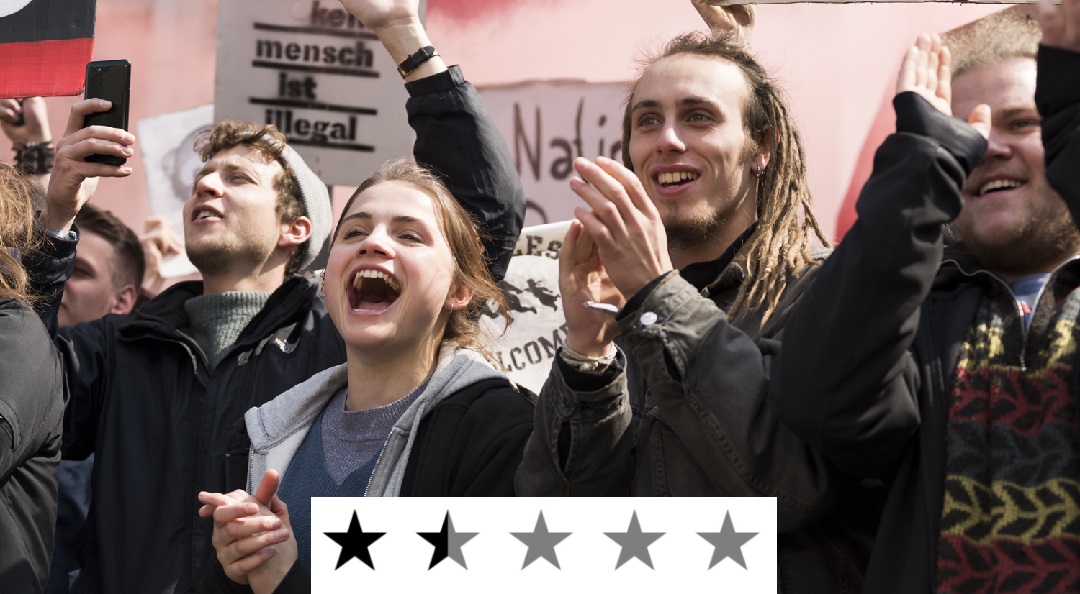
Compared to countries with a polarised media landscape, i.e. a political spectrum ranging from the extreme left to the extreme right, reflecting an equally polarised society (e.g. the USA, the UK), Germany offers a system wherein all major media are clustered around the media-political centre (Reuters Institute Digital News Report, 2017, p.20-21). The weight of the twentieth-century events has dragooned many Germans into preferring such media structure because it prevents radical opinions from circulating in the mainstream. Nonetheless, others still criticise this construct as it doesn’t lay the foundations for large-scale criticism of the elite. During the immigration crisis five years ago, some of these critics revived the xenophobic, chauvinistic spirit from the 1930s, which led to the electoral success of Germany’s far-right political party—AfD. As the media-political centrism was maimed thereby, the far-left Antifa cropped up to neutralise the former and ostensibly balance the status quo.
This notion of balance can also be conveyed physically—if some people start standing on the right side of a boat, others have to go on the left so that they don’t tumble over. And Und Morgen Die Ganze Welt (n.b. meaning ‘and tomorrow the whole world’ as an allegory to a song from the Hitler Youth Songbook), which massively backs the existence of far-left movements fighting neo-Nazis, bases its argument on this notion of balance. On the other hand, the film fails (maybe purposely) to name any potential dangers emerging from Antifa’s presence. Historically, its ideology was never about societal balance, but always against the liberal democratic order. The organization originated during the Weimar Republic as part of the Communist Party of Germany’s campaign, which described Antifa as a united front representing the only anti-fascist political party—the CPG (or in German—KPD).
Und Morgen Die Ganze Welt introduces us to Luisa (Mala Emde), who leaves her elitist family (n.b. Luisa’s family is utilised as a narrative instrument to portray the liberal centrist German policy which has ‘always favoured’ the Nazis) and starts living in an Antifa commune where she and her comrades make plans to combat the local neo-Nazi movement. During a protest, a neo-Nazi gropes Luisa, and after her comrade Alfa (Noah Saavedra) saves her, she falls in love with him. The two contemplate ways to preserve the left-right conflict within the democratic order, i.e. without physical violence; however, they later decide that in order to fight such evil, it’s necessary to go underground and operate with the ‘an-eye-for-an-eye’ motto. Interestingly, the neo-Nazis are far more peaceful than Antifa in the film. Indeed, they shout disgusting xenophobic phrases, but they don’t use excessive violence (except for Luisa’s groping) whereas the Antifa representatives plunder and inflict damage to the “bad guys” from behind. Put differently; the neo-Nazis don’t materialise their racist hatred into anything more than some screaming, and Antifa uses violence as a precaution against them. Maybe the lesson is that if we hear someone say the ‘n-word’ to a black man on the street, we should blow him up?
In reality, neo-Nazis are causing trouble for many people today. Then again, the fact that the film doesn’t bother to show us their animalistic side shows how easy it is to write anti-Nazi stories—the viewer ‘knows’ they’re the worst thing in the universe, and the strong communist propaganda, vehemently opposing the ‘worst’, imprints itself in the viewer’s mind as the only solution against the far-right. Oh, comrade Stalin, I forgot how beautiful your smile is.

packing was very safe and quality is great.